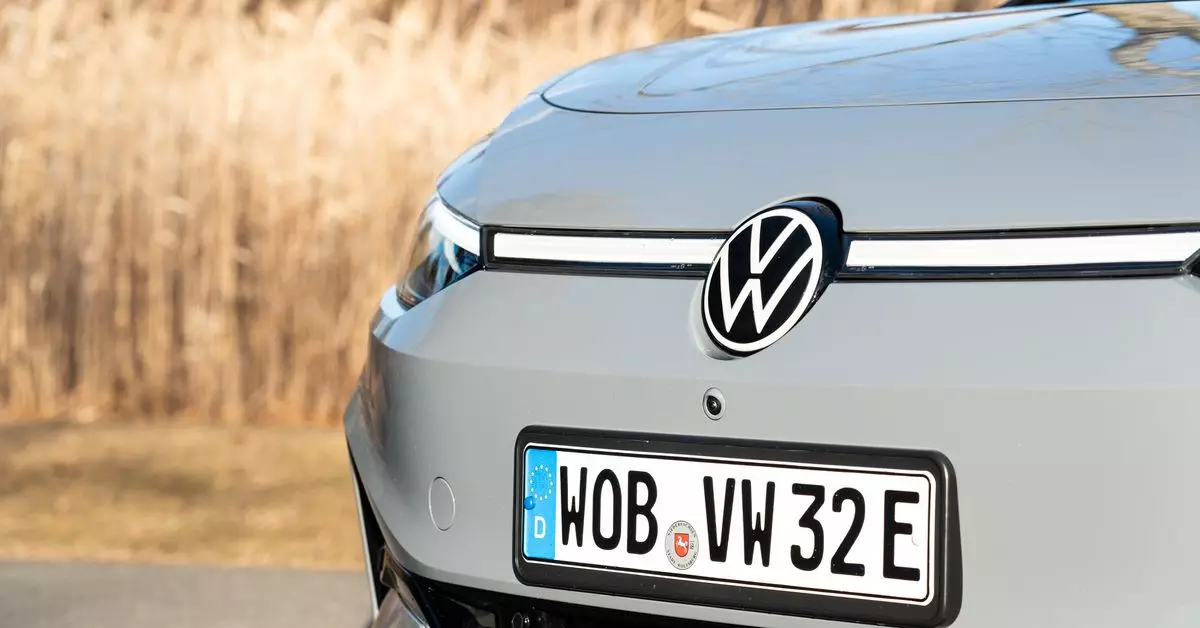In a world where technology dominates daily life, the integrity of data is paramount. A troubling incident involving Volkswagen (VW) has underscores the vulnerability of electric vehicle (EV) data systems. Over 800,000 electric VW cars suffered from a significant data leak, exposing sensitive location information. This alarming breach raises critical questions about data security protocols, especially as the automotive industry increasingly integrates advanced software into its vehicles.
According to an investigation by the German news outlet Der Spiegel, the leak originated from vulnerabilities in VW’s proprietary software, specifically from the Cariad subsidiary responsible for the company’s tech infrastructure. The information that was laid bare not only enabled access to the precise location data of around 460,000 vehicles but also risked exposing personal identification of the drivers. The ramifications of such access can be severe, allowing malicious actors to track individuals’ movements in real-time.
The report indicated that the leak was first flagged by a whistleblower to both Der Spiegel and the Chaos Computer Club, a renowned European hacking organization. The scope of the vulnerability extends beyond VW to include other brands under its umbrella, such as Audi, Seat, and Skoda, highlighting a systemic flaw in Volkswagen’s approach to data security in its electric vehicle lineup.
The breach was particularly alarming not only due to the sheer volume of affected vehicles but also because it potentially connected vehicle location data to personal identifiers like names, addresses, emails, and phone numbers. This intersection of vehicle telemetry data and personal information creates a perfect storm for identity theft and invasion of privacy. The notion that location data could be recorded with precision to within ten centimeters raises severe alarms regarding the extent of personal data collected and the protocols for its protection.
As the automotive industry evolves towards a more connected future, the case of Volkswagen serves as a cautionary tale. Consumers expect their vehicles not only to perform efficiently but also to safeguard their privacy. A breach of this magnitude could erode consumer trust, setting back the industry’s efforts to attract tech-savvy buyers.
In the wake of this incident, it is crucial for Volkswagen to take decisive action. The company must enhance its data protection measures and re-evaluate its software vulnerabilities. Transparency should also be prioritized; the public deserves to know what corrective actions are being implemented to mitigate potential risks in the future.
Additionally, as manufacturers continue to focus on the integration of more sophisticated technology into their vehicles, it is imperative to establish robust security frameworks that can adapt to evolving cyber threats. This includes employing advanced encryption techniques, frequent audits of data systems, and continuous monitoring of vulnerabilities.
The Volkswagen data breach highlights the broader implications of tech integration in transportation. With the rise of electric vehicles, companies must take proactive steps in securing consumer data. Without firm commitments to safety and privacy, the allure of innovative automotive technology may diminish, leaving consumers wary of the very advancements designed to enhance their driving experiences. The lesson here is clear: in today’s digital landscape, the protection of sensitive information is not just a regulatory requirement but a fundamental consumer expectation.

